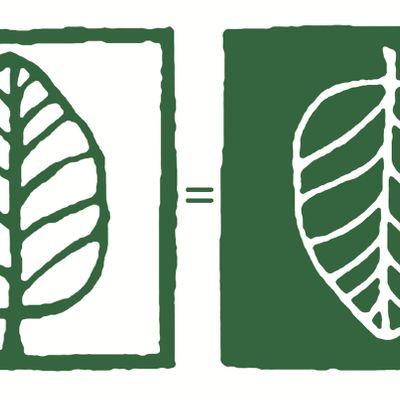
day event near Huntly, Aberdeenshire.
About this Event
PLEASE NOTE: Tickets obtained on Eventbrite are to join the roundtable discussion online via a Zoom link, at 1:30pm until 4:00pm, UK.
As part of the Scottish Government Climate Change Engagement Programme, SEDA Land is holding a one day event near Huntly, Aberdeenshire including a farm tour and roundtable discussion.
There is no charge for this event. There are 10 spaces for the morning tour which will be allocated on a first come first served basis. There are only online tickets available for the roundtable discussion in the afternoon at 1:30pm until 4:00pm, UK.
Programme
Wednesday 28 February 2024
10:00 - 12:00 am: tour of Knock Farm, Huntly – a 1400 acre organic mixed farm by owner Roger Polson
12:30 - 1:30 pm: lunch, Knock Farm, Huntly
1:30 - 4:00 pm: roundtable discussion, Knock Farm, Huntly (available to join online).
There will be several artistic interludes during the day.
Aim
In “You Are What Your Food Eats” we aim to investigate the long-term effects of land-use decisions on climate change and the food chain. This is part of a long-term project SEDA Land is running with Huntly. The event forms part a collaboration between the community, scientists, landowners, farmers, food processors, distributors and retailers.
We want to help the community, landowners and managers understand and visualise alternative ways of producing food in a productive ecological landscape that serves the climate and the community. This could lead to innovative new forms of employment in the area.
We will start by looking at the range of food that could provide the nutritional needed for a healthy diet for the population in and around Huntly; which of these can be grown locally, by traditional or alternative methods; and how to achieve that. There will be as much emphasis on what products (crops and other food sources) we need, as on regenerative farming methods.
A roundtable discussion involving all stakeholders in the production and supply of food and food products will look at how we can add value to Huntly and its environs in the food supply chain in order to achieve resilience and health equity. We will identify obstacles and propose solutions to deliver a fair and just transition to net zero in the rural land use sector. We will analyse the input from all stakeholders and send our findings to the Scottish Government to inform the Just Transition Plan for Land Use and Agriculture, the Scottish National Adaptation Plan and wider climate policy.
Along the way, although it is not the main objective of this event, we will consider related sustainable land uses such as forestry, alternative bio-product crops and different types of renewable energy. Huntly was chosen because it’s a good example of a highland town with a mid-sized population of 4,460, where the surrounding farmland is predominantly tilled or grass-sown for grazing. We will explore the potential for alternative land uses – introducing the local community and farmers to growing food on slopes; seasonal food; foraged food and indoor-grown food. We will also demonstrate that alternative farming brings increased biodiversity, carbon storage and other benefits.
A ‘supply chain’ refers to the system and resources required to move a product or service from supplier to customer. The ‘value chain’ concept builds on this to also consider the manner in which value is added along the chain, both to the product / service and the actors involved. A ‘value chain’ explicitly references internal and external stakeholders in the value-creation process. It encourages a full-lifecycle perspective and not just a focus on the upstream procurement of inputs. The value chain encompasses ethical and moral concerns as well as other nonmonetary utility values such as closing material loops, the provision of ecosystem benefits and added customer value.
Field workshop
Land use – to look at alternative land uses that will tackle climate change, help biodiversity and bring income to landowners. Short talks to be given on location at Knock Farm.
1. Soil science – Lorna Dawson, James Hutton Institute
2. Regenerative farming – Roger Polson
3. Silviculture and agroforestry – Andrew Barbour, Mains of Fincastle TBC
4. Alternative bio-products eg. hemp, flax, sugar beet – Wendy Russell, Rowett Institute, University of Aberdeen
5. Renewable energy – TBC
Talks and panel discussion
Focus group on food systems – to understand the value of food and hear from practitioners of alternative food systems. This will start with an analysis of a range of food types that can be grown locally to provide all, or as much as possible of, the nutritional requirements of a healthy balanced diet. From there we will work backwards to how that might be grown locally and what sort of systems could be in place to make this work. Short (five minute) talks will be given by scientists and successful practitioners at appropriate points during the discussion, such as from:
1. Food nutrition – Wendy Russell, Rowett Institute, University of Aberdeen
2. Food systems – Mads Fischer-Moller, WWF
3. Local distribution schemes – Pete Ritchie, Nourish
4. Community food hubs –
5. Larger scale food distributors –
At the roundtable discussion there will be approximately 25 people in person including representatives from: plant and soil science; food systems; community food hub & other community groups; local food bank; local authority procurement food e.g. to schools, hospitals; farmers; land owners and managers; food retailers & distributors.
An unlimited number of people will be able to join the discussion online.
Artistic pieces
Sarah McFadyen, traditional fiddler and composer
Dawn McLachlan, poet
Flora Fraser, artist
For further information contact:
Gail Halvorsen, SEDA Land chair, [email protected]
“You are what your food eats”
From “The Plant Paradox” by Dr. R. Steven Gundry
Event Venue & Nearby Stays
Knock Farm, Huntly, United Kingdom
GBP 0.00
